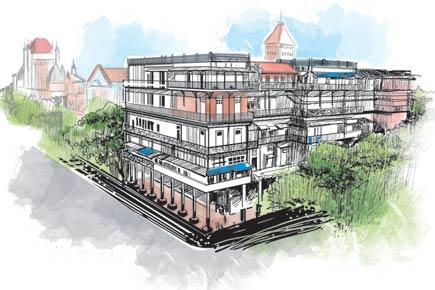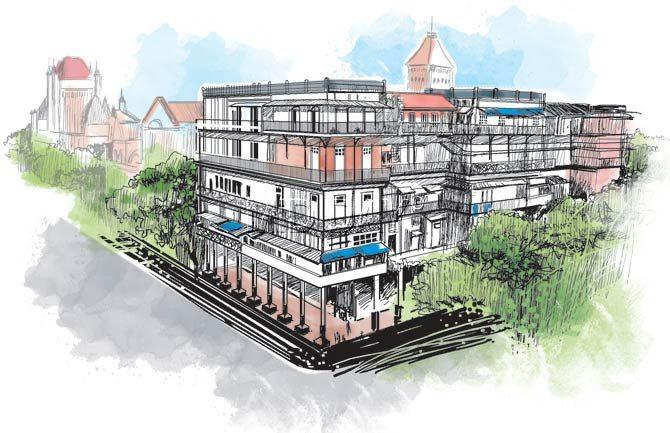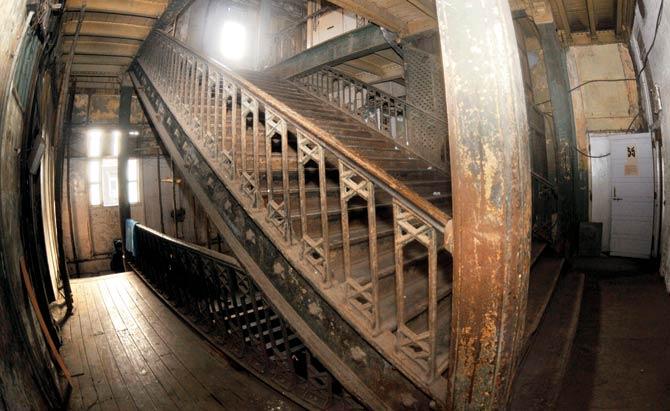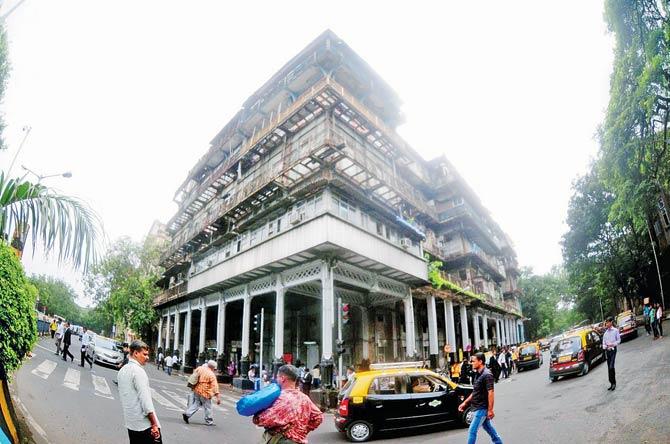Once known as the Watson’s Hotel — where the city’s rich and famous wined and dined — this cast iron landmark in Kalaghoda remains a sepia-tinted, decrepit reminder of a glorious past


Illustration/ Ravi Jadhav
ADVERTISEMENT
It’s tempting to conjure images of a grand dining room on the first floor of Watson’s on Esplanade, believed to be the “finest and handsomest” in all of Bombay. Englishmen and women are chatting over a lavish spread as a live orchestra plays Mozart’s Don Giovanni in the background.

The once-grand staircase is now in ruins yet, look closely to gaze at its fine cast iron designs
Opened in 1871, the Esplanade Hotel was Bombay’s first real swank hotel, a five-star in today’s parlance. This cast iron masterpiece, a novelty for the city at the time and even now, was designed by British engineer Rowland Mason Ordish. What’s fascinating about this building is that it was also manufactured and shipped all the way from Great Britain to India — a unique addition to the city’s diverse architectural styles.

The hotel stood in the heart of an emerging city after the Fort walls were torn down
The hotel, now a crumbling space, filled with law firms and other commercial establishments, was adapted to deal with Bombay’s heat and rainfall. History books will tell you that this building that rose in an area after the walls of the Fort were pulled down, offered amazing views to its guests.
One can imagine ship-weary passengers, after long trips from the Continent, resting in its sprawling rooms with views of the Esplanade, Back Bay and Malabar Hill, and the natural harbour.
Touted as insect and weather-proof, it soon became the place to be seen in Bombay’s colonial society. Until then, the city was in need for a luxurious hotel. It was named after its original owner, a wealthy draper called John Watson.
It housed shops, wine cellars, billiards tables, a grand staircase, sprawling coffee houses and courtyards that were lined by charming verandahs. Its arcade was another structural wonder that ensured protection in the city’s unforgiving summer and monsoon months. Unfortunately, despite its considerable importance and impact on the city in the late 19th and early 20th centuries, very little is known of how it all came together — how this mammoth frame was shipped and brought to Bombay.
Now a commercial space called Mahendra Mansion, it is mired in a long-drawn legal battle. History, sadly, will not be able to repeat itself for a long time to come.
Where: Kalaghoda, Mahatma Gandhi Road, Fort.
Did you know?
Panoramic views for its guests played a role in the design. It is believed that guests could see as far as Matheran and the ‘ghaut’ range to the north (Western Ghats)!
 Subscribe today by clicking the link and stay updated with the latest news!" Click here!
Subscribe today by clicking the link and stay updated with the latest news!" Click here!






